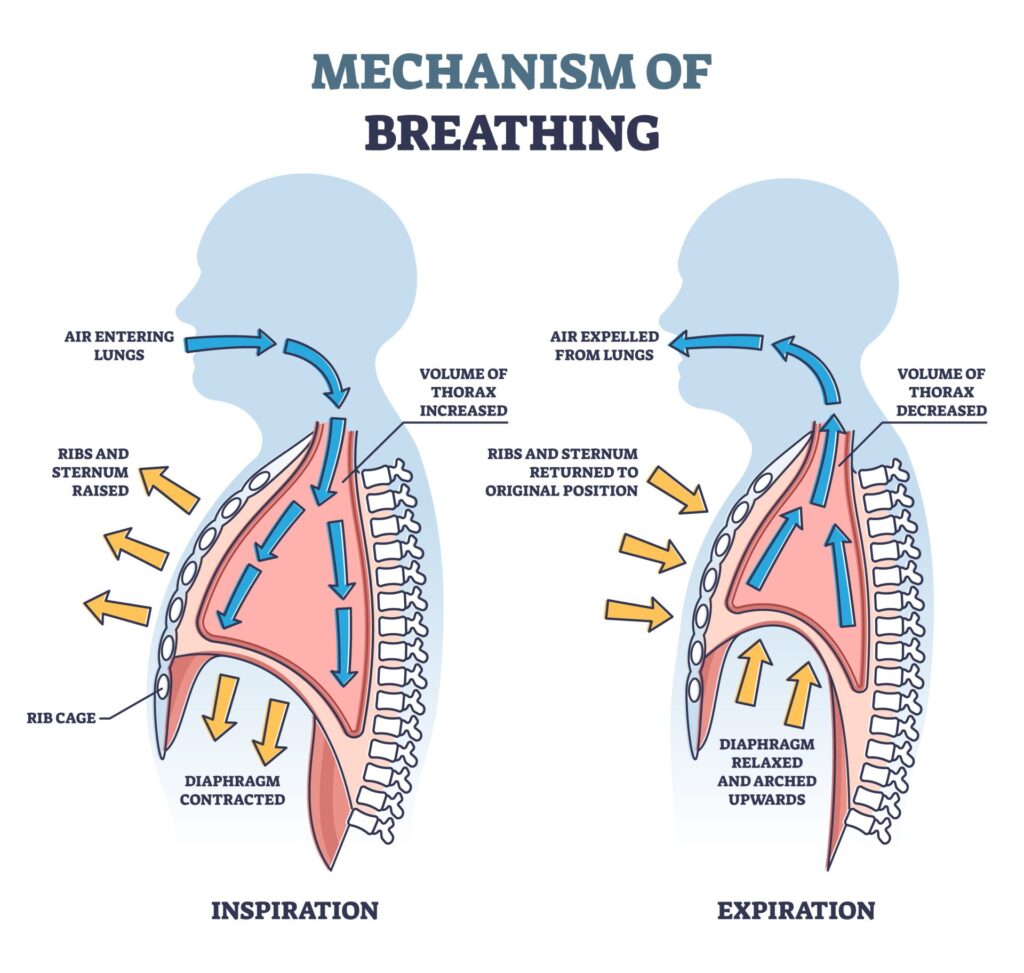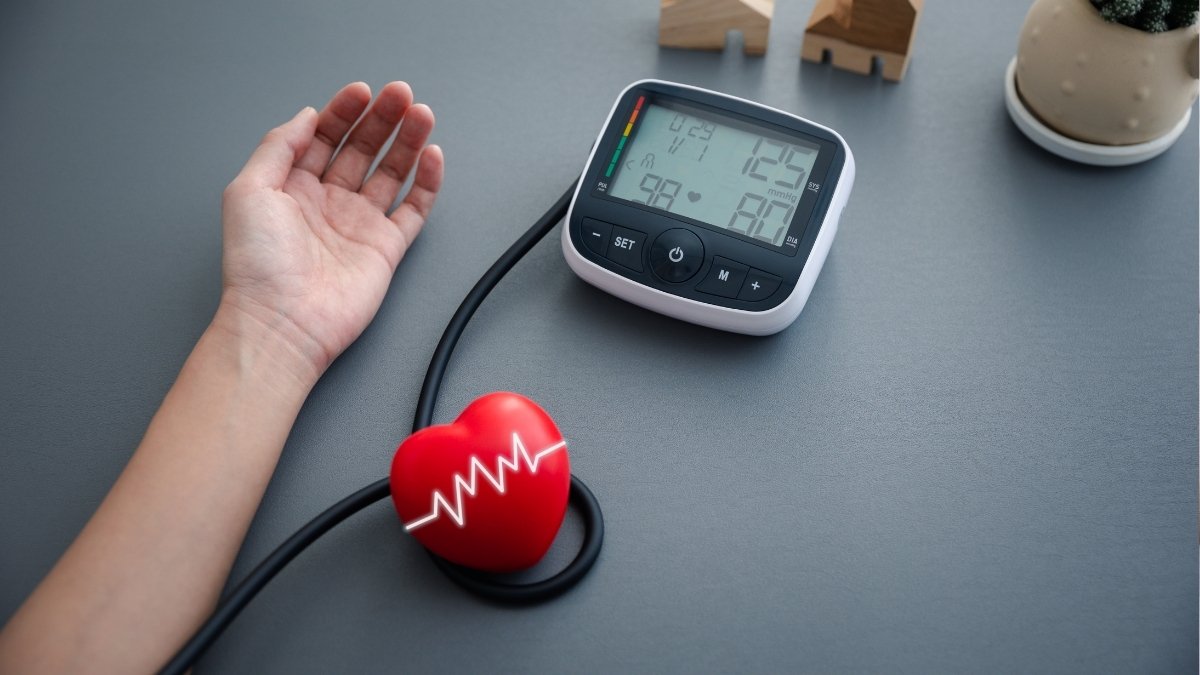The 5-Minute Morning Habit Cardiologists Say Can Add Years to Your Heart (And It’s Not Exercise)

What if the most powerful thing you could do for your heart this morning wasn’t lacing up your running shoes? What if it was simply… breathing? We all know the “big two” for heart health. You need to focus on diet and exercise.
But many of us still struggle with a silent strain: chronic stress. This daily pressure keeps your body stuck in a state of high alert. This constant “on” mode can be devastating for your cardiovascular system over time.
This article reveals a 5-minute morning habit for heart health that cardiologists and researchers are recommending. It’s not exercise, it’s not a supplement, and it’s completely free. We will explore what this simple habit is.
You’ll learn the surprising science of why it works (hint: it’s all about your nervous system). We’ll also give you a simple step-by-step guide. This will help you reduce stress heart health and make it a seamless part of your morning.

❤️ The 5-Minute Morning Habit That Saves Your Heart
Discover the science-backed breathing technique cardiologists recommend
- Modern life keeps you on high alert
- Floods body with stress hormone cortisol
- Causes chronic high blood pressure
- Creates systemic inflammation
- Exercise alone isn’t enough
- Sympathetic = “Gas pedal” (fight/flight)
- Parasympathetic = “Brake” (rest/digest)
- Most people stuck on gas pedal
- Need to activate the brake daily
- Deep breathing is the manual override
- Main nerve for parasympathetic system
- Sends direct signal to slow heart
- Activated by deep belly breathing
- Lowers heart rate immediately
- Reduces blood pressure measurably
👆 Click on any block above to learn more about the science
🌅 Your 4-4-6 Breathing Routine
Focus: Make your belly rise, not your chest
Tip: Place hand on belly to feel it
Why: Uses diaphragm properly
Focus: Relaxed hold, not forced
Tip: Stay comfortable
Why: Allows oxygen absorption
Focus: Like blowing through a straw
Tip: This is the most important step
Why: Activates vagus nerve & calms heart
When: Right after waking up
Where: Sitting on edge of bed
Why: Sets calm tone for entire day
👆 Click on each step to see detailed tips
💓 What is Heart Rate Variability (HRV)?
The small, healthy changes in time between your heartbeats
🎯 Benefits of Daily Deep Breathing
🌟 Your Action Plan
Making this habit stick is easier than you think
Habit Stacking: Connect it to something you already do every morning
Make it Simple: Put a sticky note on your mirror that says “Breathe”
Focus on Consistency: Don’t worry about perfection, just show up most days
H2: The “Silent Strain”: Why Stress is Your Heart’s Hidden Enemy
You know the big rules for heart health. Eat better. Move more. But there is a silent strain that can undo much of your hard work. That strain is chronic, daily stress.
Your body has two main operating systems. Think of them as a gas pedal and a brake. The “gas pedal” is your sympathetic system, which gets you ready for “fight or flight.” The “brake” is your parasympathetic system, which handles “rest and digest.”

Modern life, with its constant work alerts, traffic, and breaking news, keeps your foot jammed on the “gas pedal.” Your body rarely gets the signal to hit the “brake.” It stays on high alert, waiting for a threat that never comes.
This constant “on” state is not just a feeling. It floods your body with the stress hormone cortisol. This can lead to systemic inflammation and, most critically, chronic high blood pressure.
This is the key problem. The American Heart Association has highlighted studies on this link. One study found that depression and anxiety increased the risk for a major cardiovascular event, like a heart attack or stroke, by about 35%.

This is why exercise alone is often not enough. You must also find a way to manage this silent, internal strain. If you only focus on moving your body but not on calming your nervous system, you are missing a huge piece of your reduce stress heart health plan.
H2: The 5-Minute Solution: How Deep Breathing Reboots Your Cardiovascular System
Here is the 5-minute habit. It is called diaphragmatic breathing, or “belly breathing.” This specific breathing is your body’s manual override switch. It helps flip you from the “fight or flight” state to the “rest and digest” state.

Here’s how it works. This deep breathing for [your] heart stimulates the vagus nerve. The vagus nerve is the main highway for your body’s calm-down system. It sends a direct signal to your heart to slow down.
The benefits start right away. This action can immediately lower your heart rate. Research shows that just a few minutes of slow, controlled breathing can cause a measurable drop in systolic blood pressure.
H3: What is Heart Rate Variability (HRV) and Why Does It Matter?
Let’s talk about Heart Rate Variability (HRV). This isn’t your pulse. It is the small, healthy change in time between your heartbeats. A healthy heart isn’t a rigid metronome. It needs to be flexible and respond to your body.
A high HRV is a great sign. It means your nervous system is balanced. Your heart is resilient and ready for stress.

A low HRV is a warning. It’s linked to chronic stress and is a strong predictor of future heart issues.
And here’s the connection. **This 5-minute `morning habit for heart health
H2: Your 5-Minute “Heart-Saver” Routine: A Step-by-Step Guide
You can do this. The best time is right when you wake up, before you check your phone or drink coffee. “Anchor” this habit to something you already do, like sitting on the edge of your bed.

First, sit up straight but stay relaxed. Close your eyes. Place one hand on your chest and the other on your belly, just over your navel. This helps you feel how you are breathing.
Step 1 (Inhale): Inhale slowly and deeply through your nose for a count of 4. Focus on making your belly hand rise, while your chest hand stays still. This proves you are using your diaphragm.
Step 2 (Pause): Gently hold that breath for a count of 4. This pause should be easy, not forced.

Step 3 (Exhale): Exhale even slower through your mouth, like blowing gently through a straw, for a count of 6. This long, slow exhale is the real secret. It’s what activates your vagus nerve and tells your heart to slow down.
Step 4 (Repeat): Set a timer for 5 minutes. Repeat this 4-4-6 breathing cycle. This simple deep breathing for [your] heart is the entire morning habit for heart health.
H2: Beyond the 5 Minutes: Making Your Morning Habit for Heart Health Stick
The 5-minute action is simple. But making it a real habit is the hard part. Many people try for a few days, miss one, and then stop completely.
The goal is not perfection. The goal is consistency. You just need to show up most days. Here are three simple ways to make this new morning habit for heart health stick.
First, use “habit stacking.” This is the most critical trick. You connect your new 5-minute habit to something you already do every single morning.

B.J. Fogg, a Stanford expert on habits, gives this formula: “After I [EXISTING HABIT], I will [NEW HABIT].” For example: “After my alarm goes off, I will sit on the edge of my bed and breathe for 5 minutes.” Or, “While my coffee is brewing, I will stand and do my 5 minutes.”
Second, make it “stupidly simple” to start. Remove any friction. Put a sticky note on your bathroom mirror or coffee machine that just says “Breathe.” Set your phone’s timer the night before.

Finally, focus on the cue, not the feeling. Don’t worry if you “feel calm” or “zen.” Your only job is to do the 5 minutes when your cue happens. This is how you build the habit. The good feelings will follow.
H2: “What If I Feel…?” Common Questions About Deep Breathing for [Your] Heart
It’s normal to have questions when you start a new practice. This deep breathing for [your] heart is simple, but a few things might feel strange at first. Here are the most common questions and answers.

“What if I feel dizzy?” This is very common. It just means you are breathing a bit too fast or too deep. Don’t force it. Slow down and focus more on the long, gentle exhale. Make your inhale feel a little more natural.
“What if my mind wanders?” Good. That means you are human. Your mind will wander. The “habit” is not about having a blank mind. Your mind is like a puppy; it will run off. Your job isn’t to yell at it. Your job is to just gently notice it wandered and bring it back to your count.

“What if my chest moves instead of my belly?” This is also normal. Most of us are “shallow chest breathers.” Try this: Lie flat on your back first. It is much easier to feel your belly rise and fall in that position. Practice there for a few days, then try it sitting up again.
Final Thoughts:
You do not need to change your entire life to protect your heart. Diet and exercise are vital. But managing your body’s stress response is the third, often-missing, piece of the puzzle.
This 5-minute morning habit for heart health is a powerful, science-backed tool to do just that. It helps you take control of your internal stress before your day even begins.

Here is your call to action. Set a 5-minute timer for tomorrow morning. Before you check a single email, give your heart the “rest and digest” signal it needs.
Make this simple act of deep breathing for [your] heart the first, most important appointment you keep. It’s a small change that can make a real difference for your health over time.






